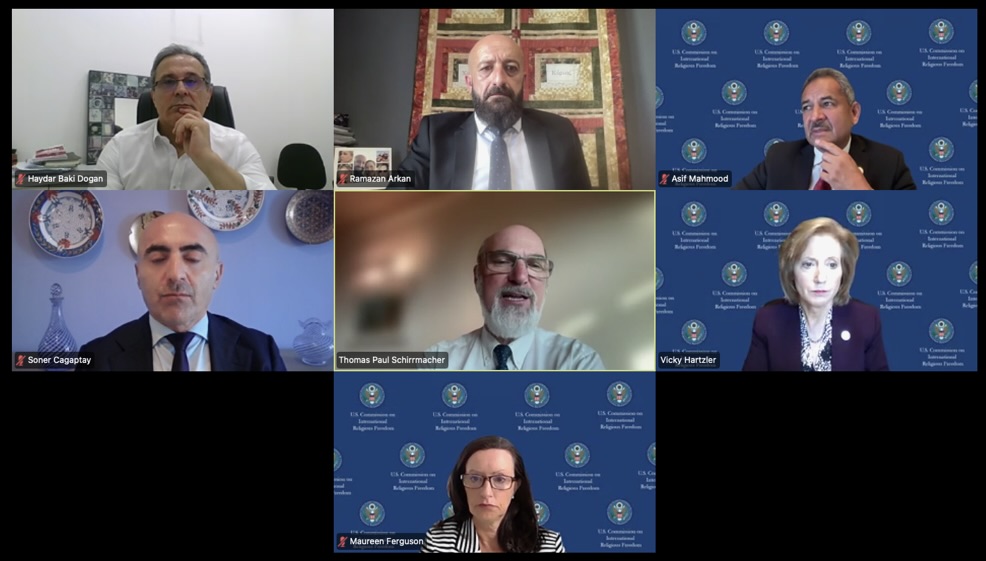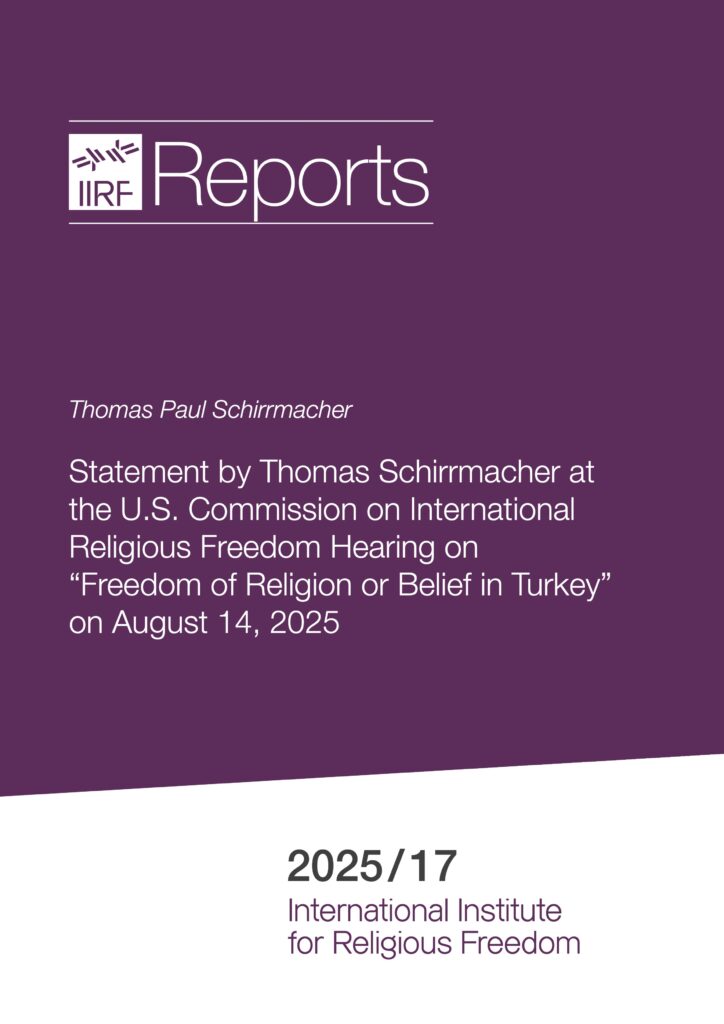
IIRF president Thomas Schirrmacher (at the center in the screenshot) was among the speakers as the U.S. Commission on International Religious Freedom held a hearing on August 14 regarding violations of religious liberty in Turkey (or Turkiye, as the Turkish government now officially spells the name).
Turkey has long posed a challenge for religious freedom advocates. As a member of the Council of Europe, it is subject to the European Convention on Human Rights, but it does not consistently abide by those terms. As of the end of 2024, the European Court of Human Rights had 21,600 pending cases from Turkey, or 35 percent of all cases.
In his comments at the August 14 hearing, Schirrmacher noted that the violations in Turkey were by no means limited to Christians. In fact, he began by observing that even Muslims lack religious freedom, “as they do not have the right to choose their religion or worldview, and do not have the right to choose which version of Islam they want to follow.”
For example, the Alevites, Sufis, the Gülen movement, and Kurdish Muslims cannot have their own mosques or provide their own religious education, instead being forced to receive Sunni Muslim education.
 Schirrmacher also described limitations on the freedom of Christians, including prohibitions on theological education and on foreign clergy. He said that many clergy members who have Turkish wives and have ministered in the country for a long time have been denied reentry, forcing their families to emigrate.
Schirrmacher also described limitations on the freedom of Christians, including prohibitions on theological education and on foreign clergy. He said that many clergy members who have Turkish wives and have ministered in the country for a long time have been denied reentry, forcing their families to emigrate.
Schirrmacher added that even historically recognized religious groups in Turkey, including Armenians, Orthodox, Catholics, and Jews, have no legal status and cannot own land. He suggested that there may be as many as a million “Crypto-Armenians” in Turkey who live outwardly as Sunni Muslims but privately maintain their historic Christian identity.
Despite the restrictions that many religious groups experience in Turkey, Schirrmacher stated that some Christian groups have seen improvements in their situation under current president Recep Tayyip Erdogan. They fear that if the largest opposition party comes to power, greater repression of religious minorities could occur.
Schirrmacher urged international leaders on religious freedom issues to engage in dialogue with Diyanet (Turkey’s ministry of religious affairs) as broadly as possible. He said Turkey should be asked to grant legal status to all religious groups, including the right to deliver religious and theological education.
The USCIRF report received support from a publication produced by Turkish expatriates. The USCIRF has published a summary of the hearing with links to all the presentations. Other speakers included US congressman Gus Bilirakis; USCIRF vice chair Asif Mahmoud; Ramazan Arkan, chair of the Association of Protestant Churches; Haydar Baki Dogan, president of the Alevi Foundations Federation; and Soner Cagaptay, director of the Turkish Research Program at the Washington Institute for Near East Policy.